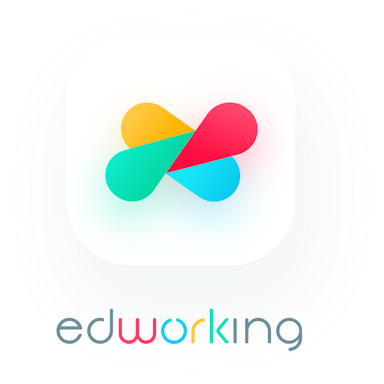Picture this: You're leading a team, and you've got a project deadline looming. The stakes are high, and you can't afford to let anything slip through the cracks. But how can you ensure that your team stays on track and completes the project on time? The answer lies in effective time tracking.
In this article, we'll delve into the importance of time tracking in project management, highlighting its numerous benefits and the ways it can help you achieve success. But first, let's get a handle on what time tracking is all about.
 Understanding Time Tracking
Understanding Time Tracking
What is Time Tracking?
Time tracking is the process of measuring and recording the amount of time spent on specific tasks, projects, or activities. It provides insights into the actual time it takes to complete tasks, allowing project managers to make informed decisions, optimize resource allocation, and ultimately, ensure projects are completed on time and within budget.
Time Tracking Methods
Various time tracking methods can be employed, such as manual logging, using spreadsheets, or leveraging specialized time tracking software. Some tools also integrate with project management platforms, like Edworking, for a seamless experience.
- Manual logging: This method involves manually recording the time spent on tasks, either by writing it down or entering it into a digital document. While simple, manual logging can be time-consuming and prone to errors.
- Spreadsheets: Some teams use spreadsheets to track their time. This approach offers more structure than manual logging but can become unwieldy as the amount of data grows.
- Time tracking software: Specialized software automates the time tracking process, making it more accurate and efficient. Some tools even integrate with project management platforms, streamlining the entire process.
 Top Benefits of Time Tracking in Project Management
Top Benefits of Time Tracking in Project Management
Now that we have a grasp on time tracking, let's explore its importance in project management.
Enhanced Productivity
Have you ever wondered where the day went? Time tracking can help you find out. By monitoring the time spent on tasks, you can:
- Identify time-wasting activities: Time tracking allows you to see where your team members are spending their time, enabling you to identify inefficient processes and make improvements.
- Streamline processes: With data on how long tasks take to complete, you can reevaluate your workflows and make adjustments to enhance efficiency.
- Allocate resources more efficiently: Time tracking data can help you determine which tasks require more attention and resources, ensuring your team's efforts are focused on the right areas.
The result? A significant boost in productivity.

Accurate Project Estimation
Remember that time you underestimated a project's scope and ended up working late into the night? Time tracking can prevent that from happening again. By analyzing historical data, you can make more accurate estimates for future projects, ensuring a smooth, stress-free experience.
- Past performance analysis: Reviewing historical time tracking data can provide valuable insights into how long similar tasks and projects have taken in the past, helping you make more accurate predictions for upcoming work.
- Data-driven decision-making: When you have a clear understanding of your team's capabilities based on time tracking data, you can make more informed decisions about project scope, deadlines, and resource allocation.
Improved Work-Life Balance
When you track time, you're more likely to stick to a schedule, creating a healthier work-life balance for you and your team. No more late nights or weekends spent at the office – just efficient, focused work.
- Setting boundaries: Time tracking encourages team members to set boundaries between work and personal time, leading to a more sustainable work-life balance.
- Prioritizing tasks: With a clear view of how long tasks take, you can prioritize work more effectively, ensuring that essential tasks are completed during regular working hours.
- Avoiding burnout: A healthier work-life balance can help prevent burnout, keeping your team engaged, motivated, and productive.
Encouraging Accountability
Time tracking encourages team members to take responsibility for their tasks, fostering a culture of accountability. When everyone knows their time is being monitored, they're more likely to stay focused and complete tasks efficiently.
- Personal responsibility: Time tracking empowers individuals to take ownership of their tasks and manage their time effectively.
- Team motivation: When everyone is held accountable for their time, it can create a sense of shared responsibility and motivate the entire team to work more efficiently.

 How Edworking Can Help with Time Tracking
How Edworking Can Help with Time Tracking
Edworking, an all-in-one productivity platform, can assist with time tracking as part of its comprehensive suite of tools. By offering task management, file sharing, workspaces, meetings, and stories, Edworking simplifies remote work management and allows you to keep track of your team's time effectively.
Task Management for Time Tracking
Edworking's task management feature enables users to create, assign, and track tasks, along with integrated communication tools to facilitate updates and collaboration. By having a clear view of each team member's tasks and progress, you can easily monitor time spent on projects and make adjustments as needed.
- Transparent tracking: With Edworking, you can track task progress in real-time, making it easier to stay on top of your team's time management.
- Team collaboration: Integrated communication tools within Edworking help to streamline collaboration and updates, ensuring that everyone stays informed and on track.
Seamless Integration with Other Features
One of Edworking's strengths lies in its ability to integrate various features into a single platform. File sharing, workspace collaboration, and communication tools are all available within Edworking, making it easy to stay on top of your team's progress and time management.
- Centralized platform: Having all your project management tools in one place, like Edworking, can save time and reduce the need for multiple software applications.
- Efficient communication: Edworking's integrated communication features, such as chat, video calls, stories, and comments, help keep team members connected and informed, ultimately improving time management.
 Tips for Implementing Time Tracking
Tips for Implementing Time Tracking
Ready to start tracking time and reaping the benefits? Here are some tips to help you implement time tracking in your project management efforts.
Choose the Right Time Tracking Tool
Selecting the right time tracking tool is crucial. Look for one that fits your team's needs, integrates with your project management platform (like Edworking), and is user-friendly. An effective tool will make the process seamless and efficient.
Set Realistic Expectations
When implementing time tracking, it's essential to set realistic expectations for your team. Make sure they understand the purpose of time tracking and how it will benefit them in the long run. Avoid micromanaging, and instead, focus on the big picture and overall improvements in productivity and time management.
Establish Clear Goals and Milestones
To ensure time tracking is effective, establish clear goals and milestones for your team. This will help them stay focused, prioritize tasks, and work towards tangible outcomes.
Encourage a Culture of Accountability and Transparency
Foster a culture where team members feel comfortable discussing their time management challenges and successes. Encourage accountability and transparency, and celebrate improvements as a team.
Continuously Review and Optimize
Don't just set it and forget it. Continually review your team's time tracking data, identify areas for improvement, and make adjustments as needed. This will ensure you're always optimizing your team's productivity and time management.
- Regular check-ins: Schedule regular team meetings to discuss time tracking data and any challenges or successes related to time management.
- Data-driven improvements: Use the insights gained from time tracking to make informed decisions about process improvements, resource allocation, and project planning.
 Conclusion
Conclusion
In today's fast-paced business environment, time tracking has become an indispensable tool in project management. From boosting productivity to improving work-life balance, the benefits are clear. By implementing time tracking, you'll be well on your way to ensuring your team stays on track and your projects are completed on time and within budget. And with a platform like Edworking by your side, you'll have all the tools you need to succeed. So, why not start tracking time today and unlock your team's full potential?






